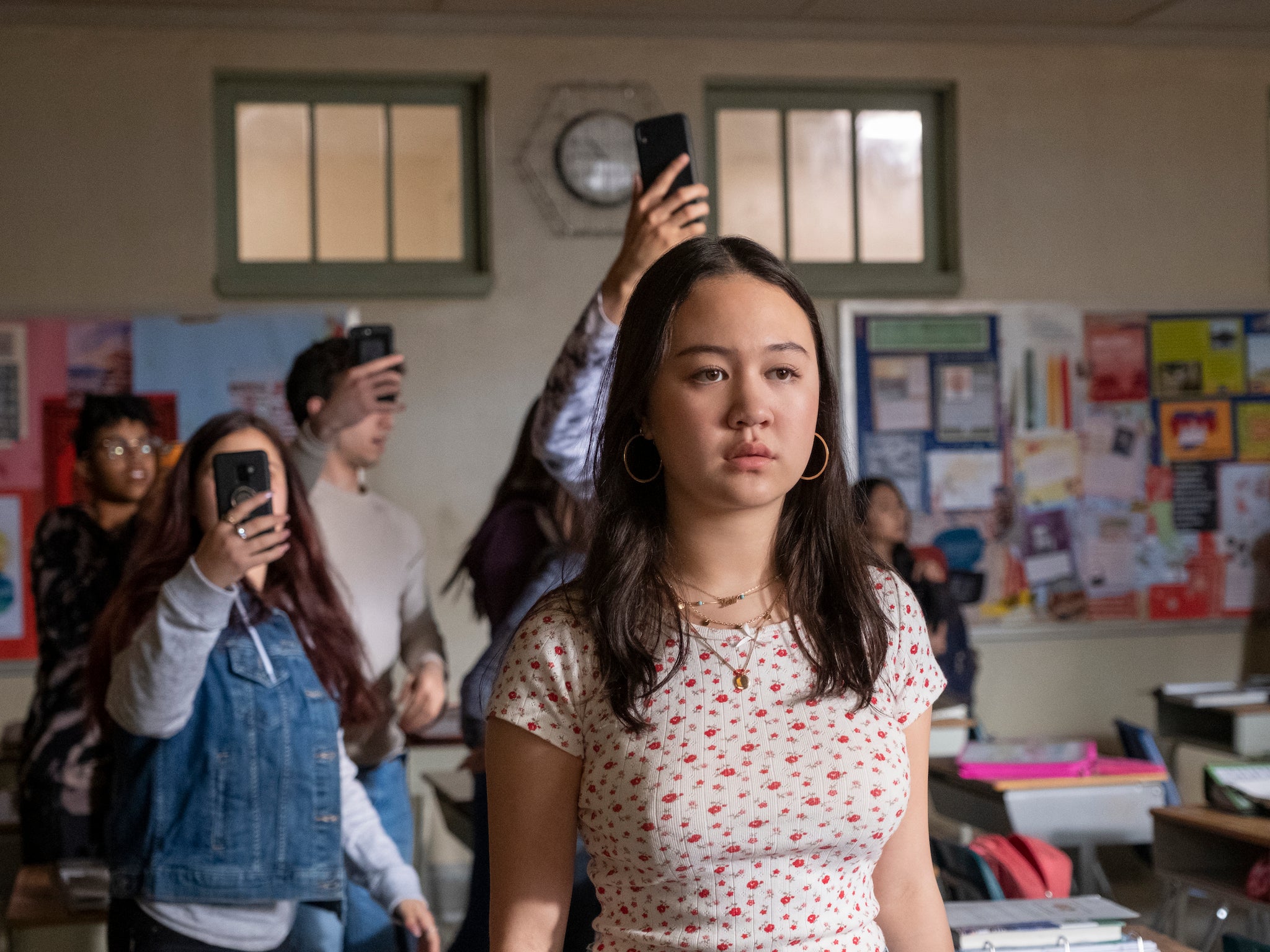Grand Army: Gen Z are more troubled than ever in this compelling high school drama
Netflix’s new drama has more to say than the typical provocations of past teen shows

“I’m drowning in APs right now, I don’t have time to deal with a f***ing fetus,” a girl says with one foot on the toilet seat, grimacing in pain as her friend kneels down trying to fish out a used condom from inside her. It’s excruciatingly intimate and horribly visceral. But then it’s over. The friends emerge, brandishing the retrieved condom like a trophy, into a locker room of teenage girls chanting the lyrics to Cardi B’s “Bodak Yellow”. And the incident is all but forgotten.
Grand Army is the latest series to try its hand at a notoriously slippery subject: How Young People Live Now. Continuing in the tradition of Euphoria, 13 Reasons Why and before those, Skins, the show depicts modern-day adolescence as a sequence of sex, drugs, alcohol, social media, scrolling, depression, more sex and more scrolling. The show means well, though. Its narrative is governed by what seems to be a sincere interest in portraying the pressures that Gen-Zers face, and it’s these good intentions that allow the series to succeed in many ways – but not all.
The Netflix drama – loosely based on the play Slut by Katie Cappiello, who also served as a first-time showrunner on the project – follows five students attending the titular Brooklyn public high school, Grand Army.
Joey Del Marco (Odessa A’zion) is the closest thing to the show’s protagonist. She’s the cool girl, only instead of emulating Regina George, Joey calls Alexandria Ocasio-Cortez her BFF and protests the school’s sexist dress code by strutting around the hallways wearing a “free the nipple” shirt.
The cool kids in Grand Army are woke – some genuinely so, others only superficially. In a bid for Joey’s affections, Tim (Thelonius Serrell-Freed) and Luke (Brian Altemus) argue over who better understands misogyny – when it actually counts, neither of them does.
Grand Army finds its heart in its remarkably talented teenage actors, particularly A’zion, Odley Jean (Dominique) and Amalia Yoo (Leila). The success of their performances lies in their ability to shift modes seamlessly. In one scene, they emanate that annoying teenage invincibility – hardened to anything and cynical about everything. In the next, the series flips them over to expose tender soft underbellies, bruised even by an unanswered text.
Cappiello has a lot of points to make: about sexism, social media, consent, drugs, class, mental health, family pressure, feminism, white feminism, racism, casual racism, activism, performative activism. It’s a lot. And as a result, some hot-button topics feel woefully unpacked. The terrorism subplot (introduced in the first 10 minutes by way of a nearby suicide bomber) is a burden mostly carried by Sid (Amir Bageria), an Indian-American student who anticipates being racially profiled after the attack.
Other themes though are giving more breathing room. Jean’s tender portrayal as financially struggling student Dominique saves the storyline from feeling like sadness for the sake of sadness.
As in any high-school show, bad things happen to these teens. But it never lingers pruriently on them. Shows like 13 Reasons Why prove how easily depictions of teenage transgression can turn into teenage torture porn. Grand Army manages to avoid the same fate.
Join our commenting forum
Join thought-provoking conversations, follow other Independent readers and see their replies
Comments
Bookmark popover
Removed from bookmarks